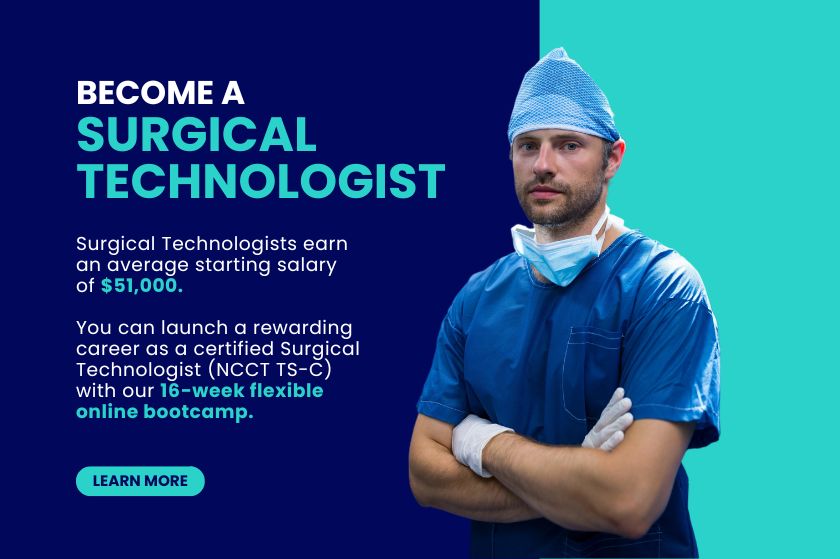In the dynamic field of healthcare, surgical teams rely on skilled professionals to ensure operations run smoothly and safely. Two critical roles in these teams are those of the surgical technologist and the surgical technician. While these titles are often used interchangeably, there are distinct differences in responsibilities, training requirements, and career paths. Understanding these distinctions is crucial for anyone considering a career in surgical technology.
The Role of a Surgical Technologist
Surgical technologists, also known as scrub techs, play a pivotal role in the operating room. They ensure that the environment is safe, equipment is functioning correctly, and the surgical team is fully prepared to perform procedures. Their duties extend before, during, and after surgery.
Pre-operative Responsibilities
- Sterilizing and arranging surgical instruments and equipment.
- Preparing patients for surgery, which includes cleaning and disinfecting incision sites.
- Assisting surgeons and nurses in putting on sterile gowns and gloves.
Intra-operative Duties
- Passing instruments and other sterile supplies to surgeons during procedures.
- Holding retractors and other items.
- Managing specimens taken for laboratory analysis.
Post-operative Tasks
- Assisting in dressing the surgical site.
- Transporting the patient to the recovery room.
- Cleaning and restocking the operating room.
Surgical technologists typically complete a postsecondary educational program that lasts from several months to two years, often culminating in an associate degree. Certification, while not always mandatory, is encouraged as it increases job prospects and potential earnings.
The Role of a Surgical Technician
Surgical technicians often have a role that overlaps with that of a technologist, but with a few key differences, particularly in terms of the scope of responsibilities and the level of expertise required. Technicians are more focused on the preparatory and supportive aspects of surgery rather than the core functions during the surgical procedure.
Key responsibilities include:
- Preparing the operating room for surgery.
- Ensuring that all necessary equipment and supplies are present and in working order.
- Sterilizing instruments and ensuring sterile conditions are maintained throughout the operation.
While surgical technicians also assist during the surgery itself, their role is generally more circumscribed compared to technologists. They might assist with less critical tasks and are less likely to be involved directly with the surgical team in the core activities of the surgery.
The educational path for a surgical technician can be similar to that of a technologist but may sometimes be shorter, focusing on essential skills and knowledge without delving deeply into advanced surgical practices. Certification and diplomas for technicians also vary depending on the institution and the specific focus of the program.
Career Outlook and Opportunities
The demand for both surgical technologists and technicians is growing due to the expanding healthcare sector, advancements in medical technology, and an aging population. According to the Bureau of Labor Statistics, employment of surgical technologists is expected to grow by 7% from 2019 to 2029, faster than the average for all occupations.
Professionals in both roles can enhance their career prospects through further specialization, such as becoming certified in specific types of surgery, like cardiothoracic or orthopedic. Opportunities for advancement also include roles such as surgical assistant or circulating technologist.
Pursue a Career in Surgical Technology Today
Deciding whether to become a surgical technologist or a technician will depend on one's career aspirations, the level of interaction desired with the surgical team, and the commitment to education and certification. Both roles provide critical support in operations and offer rewarding career opportunities in the healthcare field.
While the roles of surgical technologist and surgical technician may sound similar, their responsibilities, training, and career paths offer different opportunities and challenges. Understanding these differences is essential for those aspiring to enter the field.
Are you ready to take the first step towards a rewarding career in surgical technology? Health Tech Academy is recognized as an industry leader in healthcare education, offering accelerated surgical technologist and technician bootcamp programs. Our comprehensive curriculum is designed to prepare aspiring professionals for a future in surgical technology careers, equipping them with the knowledge, skills, and certifications needed to excel in this vital healthcare field. Join us at Health Tech Academy, where your future in surgical technology awaits.



